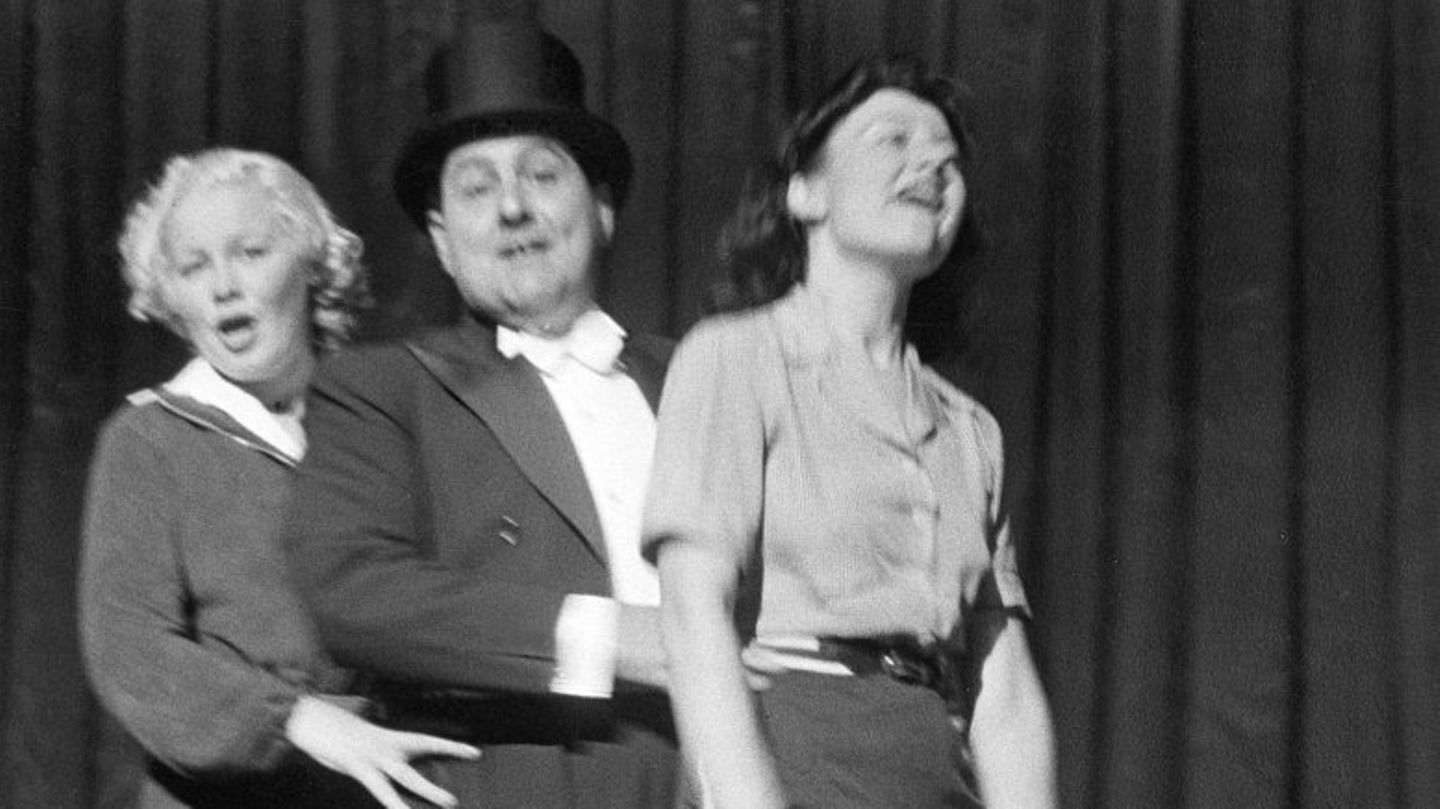Nazi actor
The man who had to die because of a Hitler joke
Copy the current link
Add to watchlist
Robert Dorsay, the chubby man with the mischievous wink, became a popular actor and cabaret artist in the 1930s. But a joke was his downfall.
The actor Robert Dorsay’s Wikipedia article contains a joke.
Unusual enough. The story behind it, however, is no laughing matter at all: this joke is the reason why Dorsay had to die at just 39 years old. He was beheaded in Berlin-Plötzensee prison in 1943.
Hardly anyone knows his name these days. The plump man with the smart face was almost like a star of National Socialist entertainment. Dorsay, born in Bremen in 1904 under the name Robert Stampa as the son of an opera singer, was a cabaret artist and comedian, actor and singer. He achieved reasonable fame, playing with Zarah Leander and Gustaf Gründgens. He smiled mischievously through feel-good films such as “My Wife, the Pearl” or “Love Letters from the Engadin”. But he loved political cabaret, swing music and had a big mouth. Attributes that were not necessarily compatible with the Nazi regime.
An acting career in Nazi Germany
Nevertheless, Dorsay had a solid career until 1942. Because he did what many did: he adapted to the regime to the extent that it was beneficial to his job. From 1932 he was even a member of the NSDAP. Voluntary, even before it was mandatory. At least for a moment he seems to have really believed in National Socialism. A mistake that many Germans frustrated by Weimar politics made at the time. For Dorsay, however, disillusionment quickly followed.
He stopped paying party contributions and was therefore expelled from the party again in 1933. When people tried to urge him to re-enter a good ten years later, he vehemently resisted and refused. However, he still appeared in questionable films such as “Robert and Bertram” (1939). To this day, the film is considered a so-called “reservation film” that is not freely available because Jews are consistently shown as “weird subhumans,” true to the Nazi worldview.
He loved swing but starred in Nazi films
And in other respects, the tragic story of the funny man from Bremen is hardly suitable as an example of the noble struggle of resistance. Dorsay made too many mistakes, he wandered and lurched through the turmoil of the Third Reich too humanely. But perhaps that’s exactly why his story is so touching: because it is that of a person who, despite his success, despite influential friends, despite following along, ultimately perished because of an inhumane system.
Because of a joke.
Robert Dorsay was not Jewish, nor Sinto or Roma. Not a foreigner and not a communist. Not homosexual, not affected by a disability. But a popular popular actor who could have avoided the war. Someone like him could have made it through the Hitler era unscathed. Just like his famous colleague Heinz Rühmann. But Robert Dorsay’s head fell under the Nazi guillotine. Not even someone with his privileges was safe.
A joke about Hitler was his downfall
Dorsay told the joke that became his downfall in March 1943 over tea in the café of the Deutsches Theater in Berlin. A “Swiss woman”, whose name is not known, and fellow actor Karl John, who was 38 years old at the time and was critical of the regime, are said to have been present. Also there, unbeknownst to anyone in the room, was a Gestapo spy who overheard the group’s caustic conversation.
The Horten Ho 229 – the Nazis’ most mysterious aircraft
In the Gotha wagon factory, the prototypes fell into the hands of the US Army.
© Commons
More
Open caption
Back
Further
The joke goes: “As Hitler enters a city, a girl holds out a tuft of grass to him. Hitler asks: ‘What should I do with this?’ The girl replies: ‘Everyone says that if the Führer bites the dust, better times will come.'”
The informant reported this to the Propaganda Ministry. Karl John was lucky because he was a close friend of the director Wolfgang Liebeneiner, for whom he was currently in front of the camera. After the tea session, Propaganda Minister Goebbels angrily called the director over to ask him about John. Wolfgang Liebeneier was punished by being forbidden from telling the actor about the questioning. Neither he nor Dorsay was supposed to know that they were being targeted by the Gestapo.
But Wolfgang Liebeneier revealed to Karl John the danger he was in. He then staged a serious accident together with a doctor he knew, had his skull fractured and was admitted to a sanatorium. So he was out of the firing line and safe for the next few weeks.
Execution by the Nazis
Dorsay, however, was completely in the dark. Little did he know that the Nazis immediately began intercepting and reading his private letters. And so he didn’t mince his words when he wrote to his friend Eddy Haase at the end of March – just a good three weeks after the fateful tea party -: “When will this idiocy finally be over? Idiocy, there’s no other way to describe it.” That was enough. Dorsay was arrested because he was trying to “publicly undermine the will of the German people for defensive self-assertion.” He remained in prison until October. Then the Nazis beheaded him.
“The death sentence passed on October 8, 1943 was carried out after confirmation on October 29, 1943. Obituaries or obituaries in newspapers, magazines and the like are prohibited,” was written in plain typewritten script in the short, terribly bureaucratic message that Dorsay’s wife Louise received that same day.
Source: Stern
I have been working in the news industry for over 6 years, first as a reporter and now as an editor. I have covered politics extensively, and my work has appeared in major newspapers and online news outlets around the world. In addition to my writing, I also contribute regularly to 24 Hours World.




